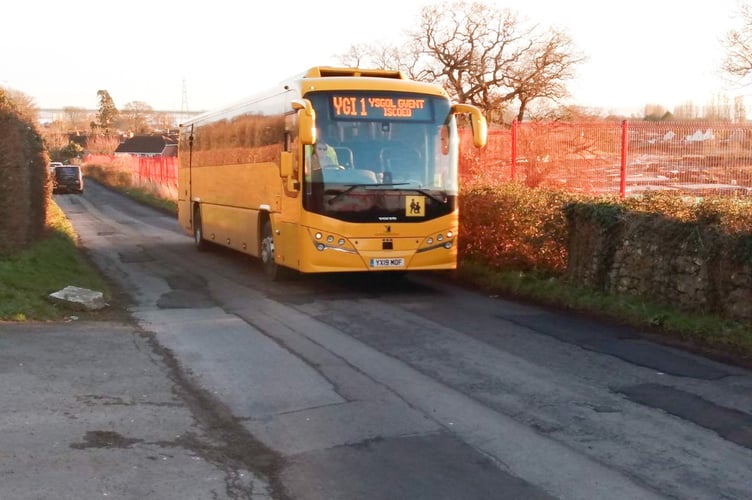CHILDREN who are told to walk to school rather than catch the bus will be given a longer notice period that they’ve been stripped of their bus pass.
A new home-to-school transport policy agreed by Monmouthshire County Council will support the Welsh Government’s “transport hierarchy” by prioritising the use of regular bus services for secondary pupils and walking for all able children.
That will mean if there is a safe walking route available youngsters will lose their right to free transport.
A council report said the new lower speed limits to be introduced across Wales later this month will assist in the change, claiming: “The introduction of the reduced 20mph speed limit will also have a positive impact for those learners walking to school,”
The council must review its home-to-school transport policy every year and the policy that has now been agreed by Monmouthshire’s Labour-led cabinet will be used for the academic year that starts in September 2024.
Free transport will continue to be provided for primary age pupils who live 1.5 miles from school, and two miles for those of secondary school age, which is more generous than the national policy.
But where walking routes, which have been assessed as “safe” by the council’s highways team, have been identified transport will be withdrawn.
The policy states: “A walking route will be considered available if it is safe (as far as is reasonably practicable) for a learner without a disability or learning difficulty to walk the route alone or with an accompanying adult if the learners (sic) age or understanding requires this.”
If the route is considered unsafe children will be provided with free transport, including where the distance is below the agreed 1.5 or two mile distances.
It had been intended transport would be withdrawn from the start of the following term, but it has now been agreed it will be from the start of the next academic year.
Cabinet member for education, Cllr Martyn Groucutt, said: “Pupils will still be able to access transport this academic year should transport be withdrawn.”
He said “tweaks” had been made to the policy up to the night before this week’s cabinet meeting and it has been agreed to amend the proposals on free transport to faith schools, which is provided at the council’s discretion.
It had been proposed the council would take into account whether pupils meet the school’s faith admission criteria regardless of whether it was used by the school in considering admission but has now been changed to the application for transport being assessed against the learner being able to meet the faith criteria contained in their chosen school’s oversubscription criteria.
The council may consult with schools to confirm that learners can meet the faith criteria.
Cllr Groucutt also said the council has “for many years” used regular buses, which any member of the public can travel on, for school transport for secondary age pupils, but it will now prioritise issuing bus passes rather than commissiong school buses. However primary age pupils aren’t expected to travel on regular bus services.
He said all drivers have criminal records checks and CCTV will also be used on buses and that concerns over punctuality and reliability, due to traffic conditions, would also apply to dedicated school buses.


.jpeg?width=209&height=140&crop=209:145,smart&quality=75)

Comments
This article has no comments yet. Be the first to leave a comment.